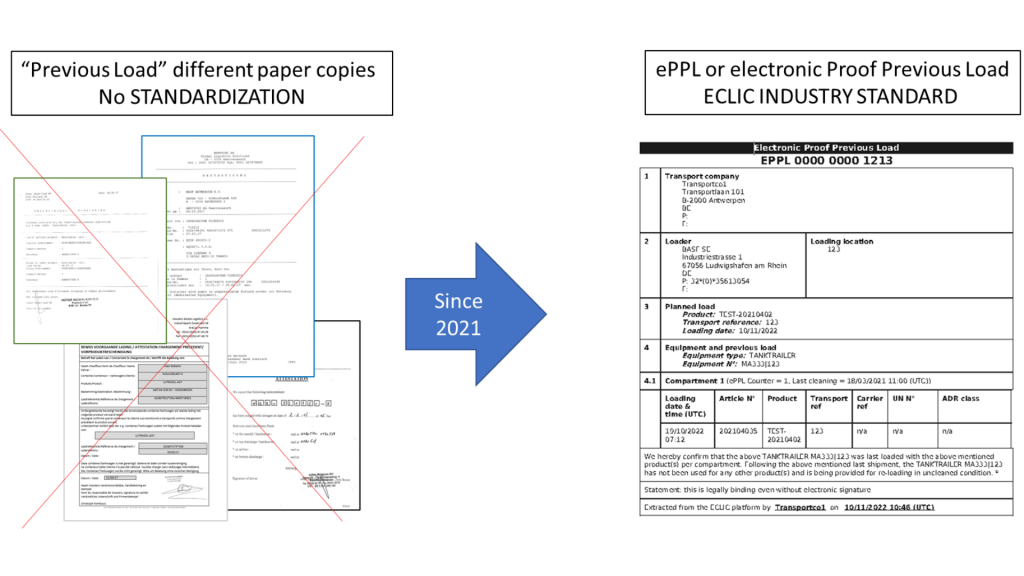Electronic Proof Previous Load (ePPL) Solution
The ePPL or electronic Proof Previous Load is a digital, industry standardized declaration describing the details of the previous product loaded into a bulk tank.
Today, in tank transport, the transport company decides based upon the transport order to clean or not to clean its equipment when planning the next trip. This decision is based on the previous product characteristics that have been loaded in that equipment and the corresponding cleaning requirements.
In case the decision of the transport company is to not clean (for instance in case of dedicated product flows or product-on-product loadings, etc.), the shipper requires the carrier to issue a proof of previous load document. With this document the Transport company declares that the equipment was last loaded with a specific previous product which is allowed according to the cleaning requirements of the chemical company. It proofs that it has in between not been used for any other purpose or products.
Back in 2020, there was no industry standard and every transport company issued an own previous load paper copy. ECLIC harmonized these different previous load paper copies in a chemical logistics ePPL industry standard solution and in addition integrated the ePPL solution within the eECD process. In other words, the eECD process got extended with a digital Proof Previous Load process between the transport company and the loader. Moreover, the ePPL document has been digitally embedded within the eECD process which results in an identical way of working between ePPL and eECD.

The benefits can be summarized as follows
- Eliminate admin paperwork
- Less rejections thanks to Improved data consistency, transparency and accuracy
- Leverage the eECD process and enable more closed ePPL loops, so more automation
- Reduced empty mileage – save CO2 emissions
- Automated tracking (counter) and checks on validity based upon equipment history
- Avoid cleanings where possible – save costs
- Enable operational improvements such as pre-announced fast-lane loading
